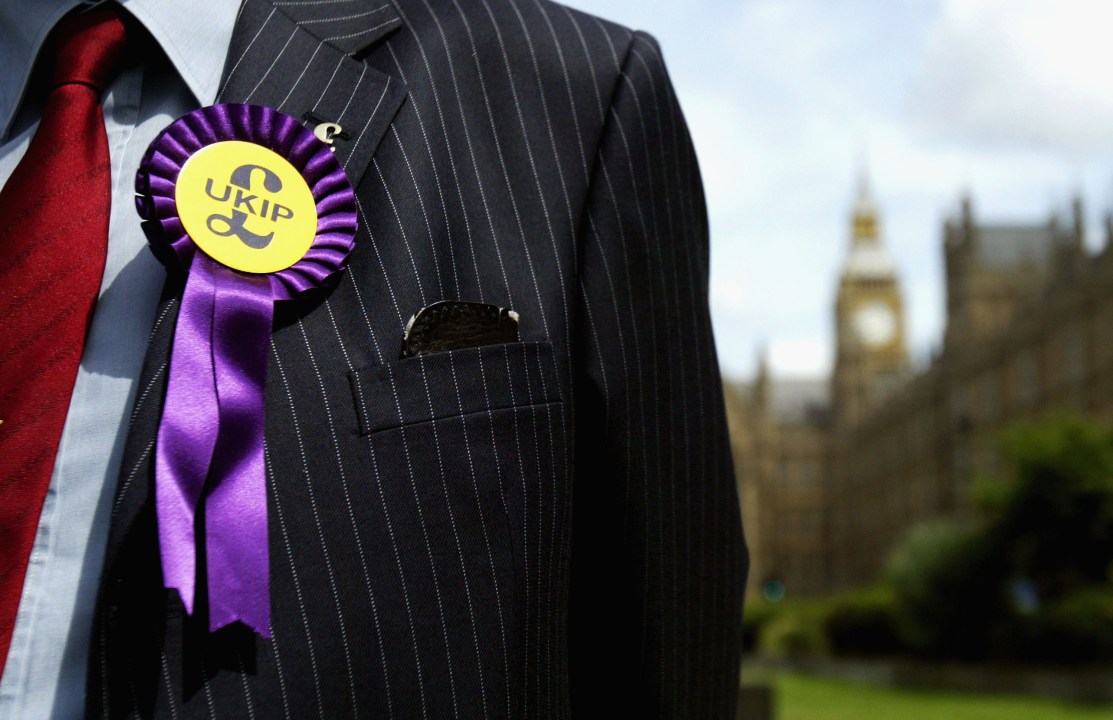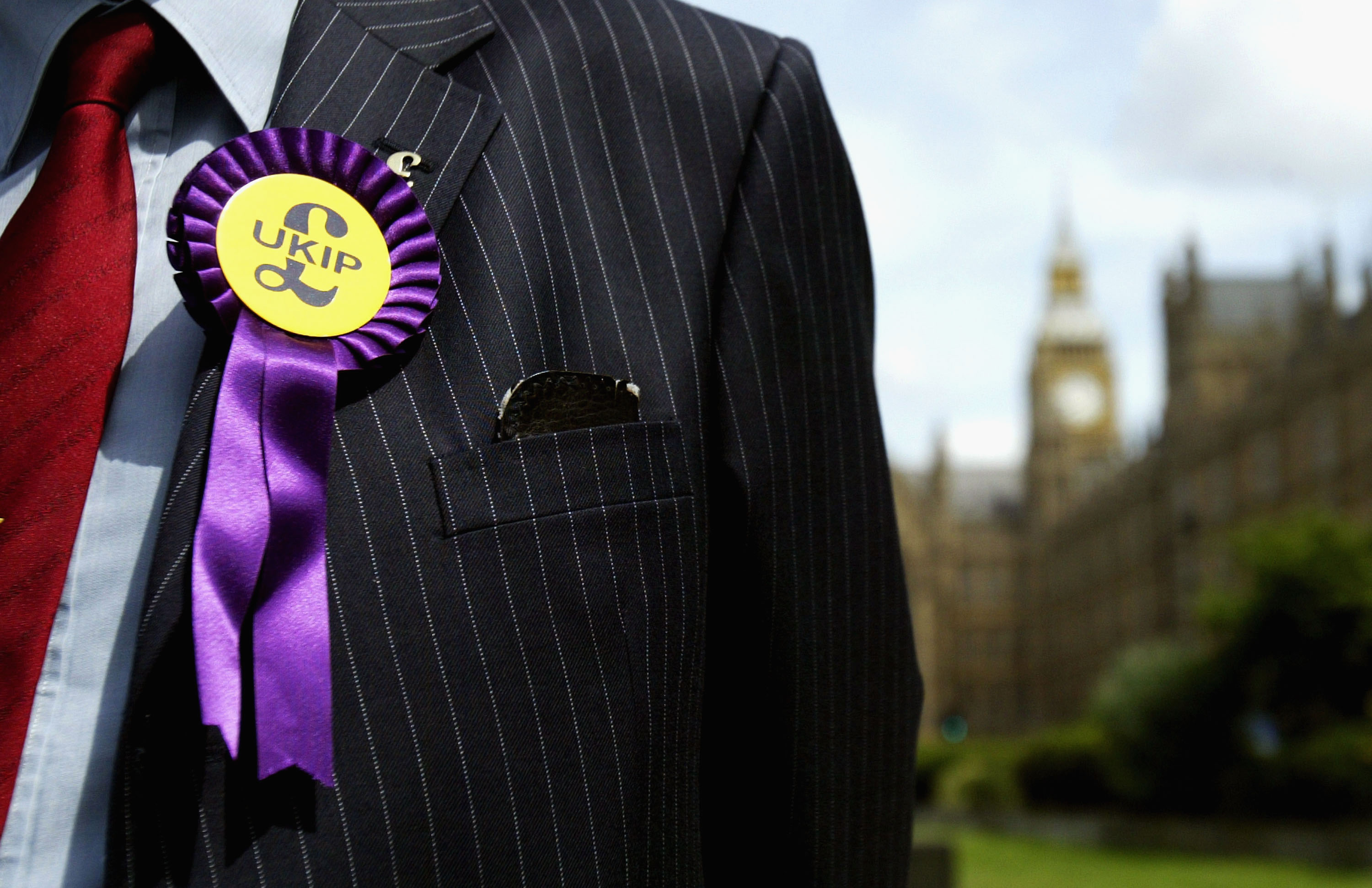A few weeks ago I drove to Market Harborough for my test as a potential Ukip candidate. The process was very thorough. There was a media interview section, where one of my examiners did a bravura impersonation of a tricksy local radio presenter (he even did the traffic bulletin beforehand). Then came a test on the manifesto. Finally, there was the bit where I nearly came unstuck: the speeches.
My problem was that the stern lady interviewing me had seen me speak before. It was at one of Nigel Farage’s boozy fundraisers at the East India Club. Coming out as a Ukip member, I had vouchsafed to the audience, had been as thrilling as finally admitting you’re gay and realising you now have the pick of London’s finest fisting clubs.
The analogy — it just came splurging out: do such specialist venues even exist? — seemed to go down well with the lairier half of the room. But not the more sedate half. ‘It’s just as well my husband doesn’t know what fisting is!’ my examiner rebuked me. The impression I got — though we parted on excellent terms — was that she wasn’t 100 per cent sure I was the kind of person she’d like to be representing her party in Westminster or Brussels.
It’s a reasonable concern, I think. Polished, smoothy-chops, Shakespeare–quoting Dan Hannan I ain’t. Nor am I as clever or fluent or subtle as Michael Gove; nor as capable and diligent as Owen Paterson (who holds the parliamentary record for most questions tabled on a single subject: over 600 on badgers); nor as funny and charismatic as Boris Johnson; nor as palpably decent and admirable as Frank Field; nor as mad-keen dedicated to constituency work as Rory -Stewart; nor as brutally effective as, say, George Galloway or Alex Salmond.
What’s more, I don’t even like politics. It’s ideas that interest me, not committee meetings and backstabbing and negotiation and compromise and other people’s crap speeches. I think it’s as well that my potential supporters are aware of this before we go any further: if you vote James Delingpole what you’re going to get is James Delingpole — not ‘James Delingpole does a half-arsed impression of what other people think a politician should look like’. Let me tell you some of things I won’t do. Peter Hain — my perfect anti-role-model — gave me some excellent examples on Any Questions? the other day. One is the cloying, sanctimonious speech designed to Show How Much You Care. Because we were in Machynlleth, scene of the murder of April Jones, Hain just couldn’t resist grandstanding about how sincerely he felt everyone’s pain.
Hain has form in this regard. This was, as far as I’m aware, the first time in recorded history where Hain didn’t use Any Questions? to cram in at least five mentions of the heroic and selfless role he played as a young man in the struggle against apartheid. But I suppose that wouldn’t have left space for the three mentions he managed to squeeze in of another of his pet topics – the expensive, pointless, environmentally destructive Severn Barrage project.
Don’t get me wrong. I get as upset by a child’s senseless murder as the next sentient human being. What I can’t bear, though, is this formulaic parading of empathy that so many politicians feel is required of them these days. Especially when it’s followed by a posturing demand for yet more intrusive and counterproductive government -legislation.
Cant — that’s what politicians like Hain specialise in. (Change the odd letter and it also describes what they are.) And I absolutely refuse to engage in it, no matter how much cheap applause it wins me, because it’s intellectually dishonest, morally wrong and, worst of all, conducive to ill-considered, knee-jerk policymaking.
The electorate, I fear, are as much to blame for this as the political class. We pay far too much attention to surface trivia, like how much MPs claim in expenses or how nicely they answer your letter grumbling about the potholes in their constituency, and far too little about what matters most: the social and economic consequences of their bad decisions.
Consider just one example: the 2008 Climate Change Act — drafted by hard-left environmental activist Bryony Worthington, voted for by all but five MPs — will cost the taxpayer £18.3 billion every year for the next forty years, driving up the cost of energy but doing absolutely nothing to solve the largely imaginary problem of ‘climate change’. Do you know how many £1,600 ornamental duck houses you could buy with that every year? More than 11 million.
No one benefits if politicians are forever worrying about what some chippy, resentful git might think about their salary or their travelling first class. Nor if they are forever treading on eggshells to avoid saying or doing anything at which some lefty pressure group or some hysterical Twitter troll might choose to take offence. God knows, our political class are far too dull and career-safe as it is.
But what I do think they ought to be terrified of, all the time — to the extent that it keeps them awake at night, sweating cold fear — is enacting poor policy. You can be the most devoted constituency MP in the world with the most parsimonious expenses record in Westminster, but if you’ve spoken up for or voted for something as ill-thought-through and damaging as HS2 or renewable energy policy, then, quite simply, you have failed your country and your name deserves to live in infamy.
So that’s where I stand. There’s the deal. Take me or leave me: I really don’t mind which.








Comments